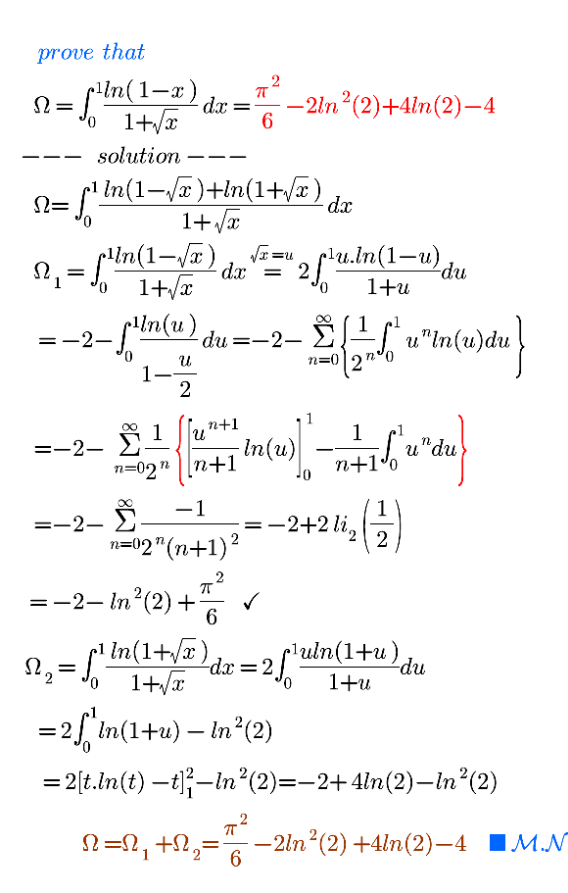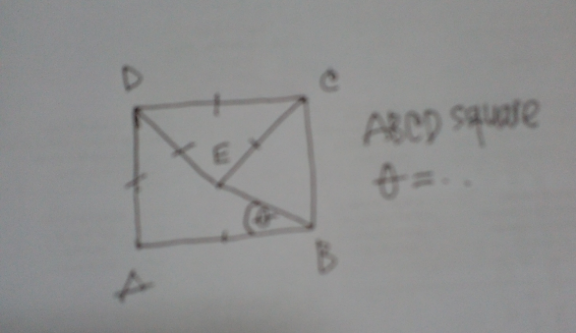
|
|

|
All Questions Topic List |
AllQuestion and Answers: Page 483 |
Question Number 165672 Answers: 0 Comments: 0
|

|
Question Number 165670 Answers: 0 Comments: 0
|

|
Question Number 165669 Answers: 1 Comments: 1
|

|
Question Number 165751 Answers: 1 Comments: 0
|
| x^3 +6x−9=0 ⇒x=?
|
|
Question Number 165653 Answers: 1 Comments: 2
|

|
Question Number 165651 Answers: 1 Comments: 5
|
| If the equation (2x−1)−p(x^2 +2)=0,
where p is constant, has imaginary
roots, deduce that 2p^2 +p−1≥0.
|
|
Question Number 165650 Answers: 0 Comments: 0
|

|
Question Number 165649 Answers: 0 Comments: 0
|

|
Question Number 165648 Answers: 0 Comments: 0
|

|
Question Number 165639 Answers: 1 Comments: 1
|

|
Question Number 165692 Answers: 1 Comments: 0
|
| why we use the current as conventional in
a circuit?
|
|
Question Number 165691 Answers: 1 Comments: 0
|
| why can′t birds catch by the AC current?
|
|
Question Number 165637 Answers: 1 Comments: 0
|
| 37tanx =11tan3x
solve it
|
|
Question Number 165620 Answers: 1 Comments: 0
|
| solve
z^7 =−4
|
|
Question Number 165617 Answers: 1 Comments: 0
|
| what is the focal length formula for
combined lenses? if lenses more than
tow?
|
|
Question Number 165616 Answers: 2 Comments: 1
|

|
Question Number 165615 Answers: 1 Comments: 0
|
| ∫_( 0) ^( 1) (dx/( (√x) ((x)^(1/3) +(x)^(1/4) )))=?
|
|
Question Number 165641 Answers: 2 Comments: 0
|
| Given that y = (1/x)
(a) Show that y^((n)) = (((−1)^n n!)/x^(n+1) )
(b) Find an expression for y^((n−1)) + y^((n))
|
|
Question Number 165608 Answers: 0 Comments: 0
|
| Reupload unanswered question.
sec^2 1° + sec^2 2° + sec^2 3° + …+ sec^2 89° = ?
|
|
Question Number 165600 Answers: 0 Comments: 19
|

|
Question Number 165599 Answers: 1 Comments: 0
|

|
Question Number 165597 Answers: 0 Comments: 0
|
|
prove that
Σ_(n=1) ^∞ (( ψ^( (1)) (n))/n^( 2) ) =(7/4) ζ (4) ■ m.n
|
|
Question Number 165581 Answers: 2 Comments: 0
|
|
ϕ(t)=∫_0 ^( (π/2)) ( sin(x)+t cos(x))^( 2) dx
find the value of the extermum
of ϕ (t).
|
|
Question Number 165574 Answers: 0 Comments: 0
|

|
Question Number 165570 Answers: 2 Comments: 0
|

|
Question Number 165568 Answers: 0 Comments: 0
|

|
Pg 478
Pg 479
Pg 480
Pg 481
Pg 482
Pg 483
Pg 484
Pg 485
Pg 486
Pg 487
|
Terms of Service |
Privacy Policy |
Contact: info@tinkutara.com |




























